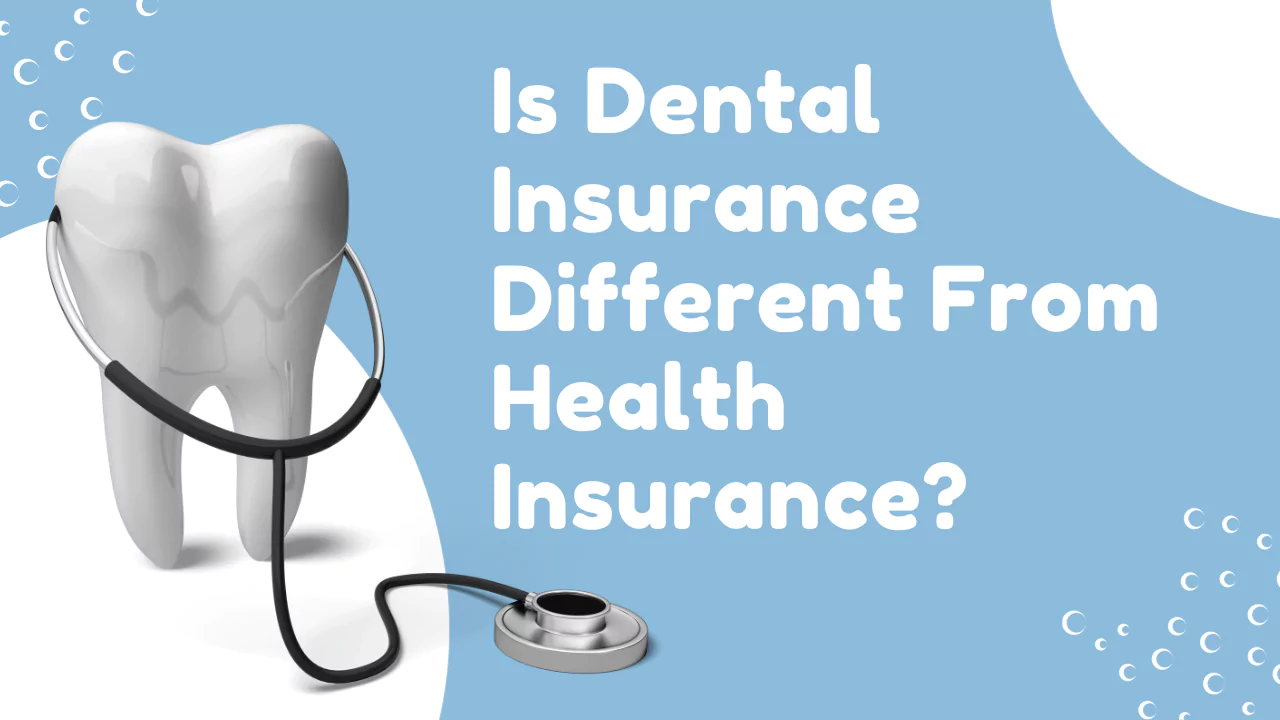Dental insurance and health insurance are both types of insurance that help you pay for your medical expenses.
However, they are not the same. Dental insurance is a separate division of health insurance that covers only dental services, such as exams, cleanings, fillings, crowns, and implants.
Health insurance, on the other hand, covers a wide range of medical services, such as doctor visits, hospital stays, prescriptions, surgeries, and preventive care.
In this article, we will explore the differences between dental and health insurance, why dental insurance is important for your overall health, and why dental insurance is not included in health insurance.
Understanding the Differences Between Dental and Health Insurance
There are several differences between dental and health insurance that you should be aware of. Some of the main ones are:
- Separate divisions: Dental insurance and health insurance are usually offered by different companies or divisions within the same company. This means that you may have to pay separate premiums, deductibles, copayments, and coinsurance for each type of insurance. You may also have to deal with different customer service representatives, claims processes, and networks of providers for each type of insurance.
- Varied deductibles and copayments: A deductible is the amount of money you have to pay out of your own pocket before your insurance starts to pay for your covered services. A co-payment is a fixed amount of money you have to pay each time you receive a covered service. Dental insurance typically has lower deductibles and copayments than health insurance. For example, you may have to pay a $50 deductible and a $20 copayment for a dental cleaning, while you may have to pay a $500 deductible and a $40 copayment for a doctor visit.
- Coverage for different types of procedures: Dental insurance usually covers three types of procedures: preventive, basic, and major. Preventive procedures include exams, cleanings, x-rays, and fluoride treatments. Basic procedures include fillings, extractions, root canals, and periodontal treatments. Major procedures include crowns, bridges, dentures, implants, and oral surgery. Health insurance covers a broader range of procedures, such as diagnostic tests, lab work, imaging studies, medications, therapies, and emergency services.
Importance of Dental Insurance for Overall Health
Dental insurance is not only important for your oral health but also for your overall health. Having dental insurance can help you prevent serious oral health problems that can affect your general well-being. Some of the benefits of dental insurance are:
- Prevents serious oral health problems: Dental insurance encourages you to visit your dentist regularly for preventive care. This can help you detect and treat any dental issues early before they become more complicated and costly. For example, dental insurance can help you prevent tooth decay, gum disease, tooth loss, infections, abscesses, and oral cancer.
- Can affect overall health and well-being: Dental insurance can also help you maintain your overall health and well-being by preventing or treating oral health problems that can have negative impacts on your body. For example, dental insurance can help you avoid or manage conditions such as diabetes, heart disease, stroke, respiratory infections, pregnancy complications, and mental health issues that can be linked to poor oral health.
Why Dental Insurance is Not Included in Health Insurance?
You may wonder why dental insurance is not included in health insurance if it is so important for your overall health. There are several reasons why dental insurance is a separate division of health insurance. Some of the main ones are:
- Different types of plans: Dental insurance and health insurance have different types of plans that suit different needs and preferences. For example, dental insurance plans may be categorized as HMOs (health maintenance organizations), PPOs (preferred provider organizations), or indemnity plans. Health insurance plans may be categorized as HMOs (health maintenance organizations), PPOs (preferred provider organizations), EPOs (exclusive provider organizations), or POS (point of service) plans.
- Focus on prevention rather than treatment: Dental insurance and health insurance have different focuses when it comes to covering services. Dental insurance focuses more on prevention than treatment. This means that dental insurance covers most or all of the costs of preventive procedures but only a percentage of the costs of basic and major procedures. Health insurance focuses more on treatment than prevention. This means that health insurance covers most or all of the costs of treatment procedures but only a percentage or none of the costs of preventive procedures.





